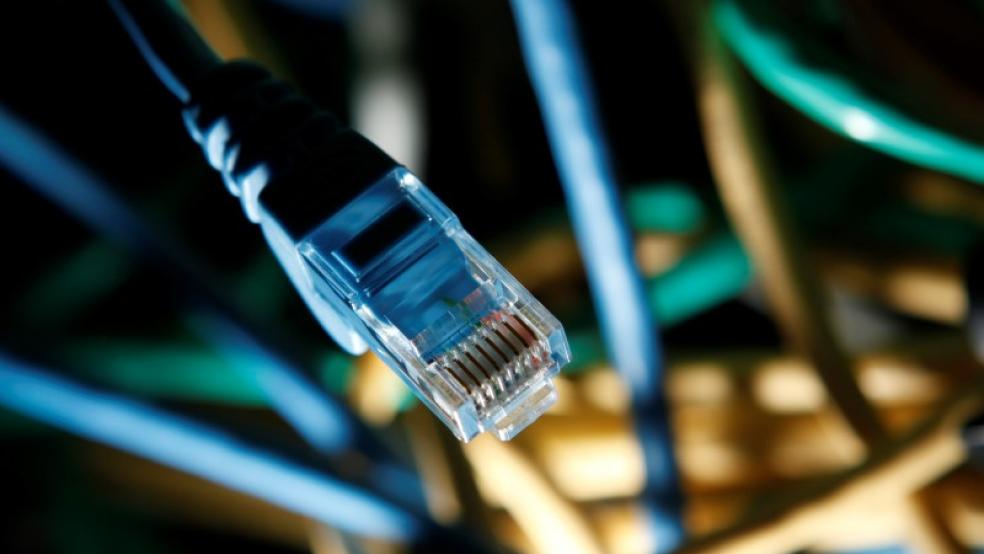WASHINGTON (Reuters) - A U.S. appeals court upheld the Obama administration's landmark rules barring internet service providers from obstructing or slowing down consumer access to web content on Tuesday, dealing a blow to big cable and mobile phone companies.
A three-judge panel of the U.S. Court of Appeals for the District of Columbia Circuit, in a 2-1 decision, backed the Federal Communications Commission's so-called net neutrality rules put in place last year to make internet service providers treat all internet traffic equally.
The rules prohibited broadband providers from giving or selling access to speedy internet, essentially a "fast lane" on the web's information superhighway, to certain internet services over others.
In siding with the FCC, the court treated the internet like a public utility and opened the door to further government internet regulations.
The ruling was a big victory for President Barack Obama, a strong advocate of net neutrality rules.
"Today's ruling is a victory for the open, fair and free internet as we know it today - one that remains open to innovation and economic growth, without service providers serving as paid gatekeepers," White House spokesman Josh Earnest said.
But the fight is not over. The internet service providers that sued to block the regulations said they would appeal either to the full appellate court or to the Supreme Court, and telecommunications industry groups said they would redouble efforts to get Congress to limit the FCC's authority.
Netflix Inc and Twitter Inc were among the companies that praised the ruling, while Google, part of Alphabet Inc, and others have backed the rules.
Presumptive Democratic presidential candidate Hillary Clinton and Democrats in Congress also lauded the ruling.
But the U.S. Chamber of Commerce business group said the FCC is "essentially transforming an entire industry, in this case the internet, from an innovative, lightly regulated enterprise that made huge investments into this country, into a public utility subject to the whims of regulators."
South Dakota Republican John Thune, who chairs the Senate Commerce Committee, said the decision upholds FCC restrictions "designed for the monopoly-telephone era." He said the Republican-led Congress needs to step in to overturn a decision that results in "a highly political agency micromanaging the internet ecosystem."
Net neutrality is a major issue for broadband providers like Verizon Communications Inc, Comcast Corp and AT&T, which fear the rules may make it harder to manage internet traffic and make investment to provide additional capacity less likely.
Verizon said it backs an open internet but urged Congress to approve "reasonable, bipartisan legislation that would provide a stable framework for continued investment and innovation."
The decision was a victory for content providers like Netflix and Yelp Inc, which have worried that access to customers could be limited without net neutrality.
The ruling boosted the FCC in its bid to complete action on major internet privacy rules applying to internet providers before the end of the year. Internet service providers have expressed growing frustration at proposed FCC regulatory mandates, including new privacy rules and a proposal to open up pay-TV set top boxes to new competitors.
'UNFETTERED ACCESS'
FCC Chairman Tom Wheeler said the "ruling is a victory for consumers and innovators who deserve unfettered access to the entire web, and it ensures the internet remains a platform for unparalleled innovation, free expression and economic growth."
The telecommunications industry trade association US Telecom, which led the legal challenge, said the court failed to recognize "the significant legal failings" of the FCC rules that "we believe will replace a consumer-driven internet with a government-run internet, threatening innovation and investment in years to come."
The court also rejected legal arguments from opponents that the rules should not apply to mobile phone web use or that they violated the constitutional free-speech rights of internet service providers.
Republican FCC commissioner Michael O'Rielly said, "We all will rue the day the commission was confirmed to have nearly unmitigated power over the internet."
While the ruling was critical for businesses, consumers likely will not notice any difference because the rules have been in effect since June 2015.
The court's ruling was made by two Democratic-appointed judges: David Tatel, named by President Bill Clinton, and Sri Srinivasan, an Obama appointee. They wrote that "over the past two decades, (website) content has transformed nearly every aspect of our lives, from profound actions like choosing a leader, building a career, and falling in love to more quotidian ones like hailing a cab and watching a movie."
Judge Stephen Williams, an appointee of Republican President Ronald Reagan, wrote in dissent that "the ultimate irony of the commission’s unreasoned patchwork is that, refusing to inquire into competitive conditions, it shunts broadband service onto the legal track suited to natural monopolies."
The FCC decided in 2015 to reclassify internet service providers as common carriers under a 1996 law. But unlike how utilities are treated, the FCC decided not to impose rate regulations or require broadband providers to file notice of pricing plans.
(Additional reporting by Lawrence Hurley)


